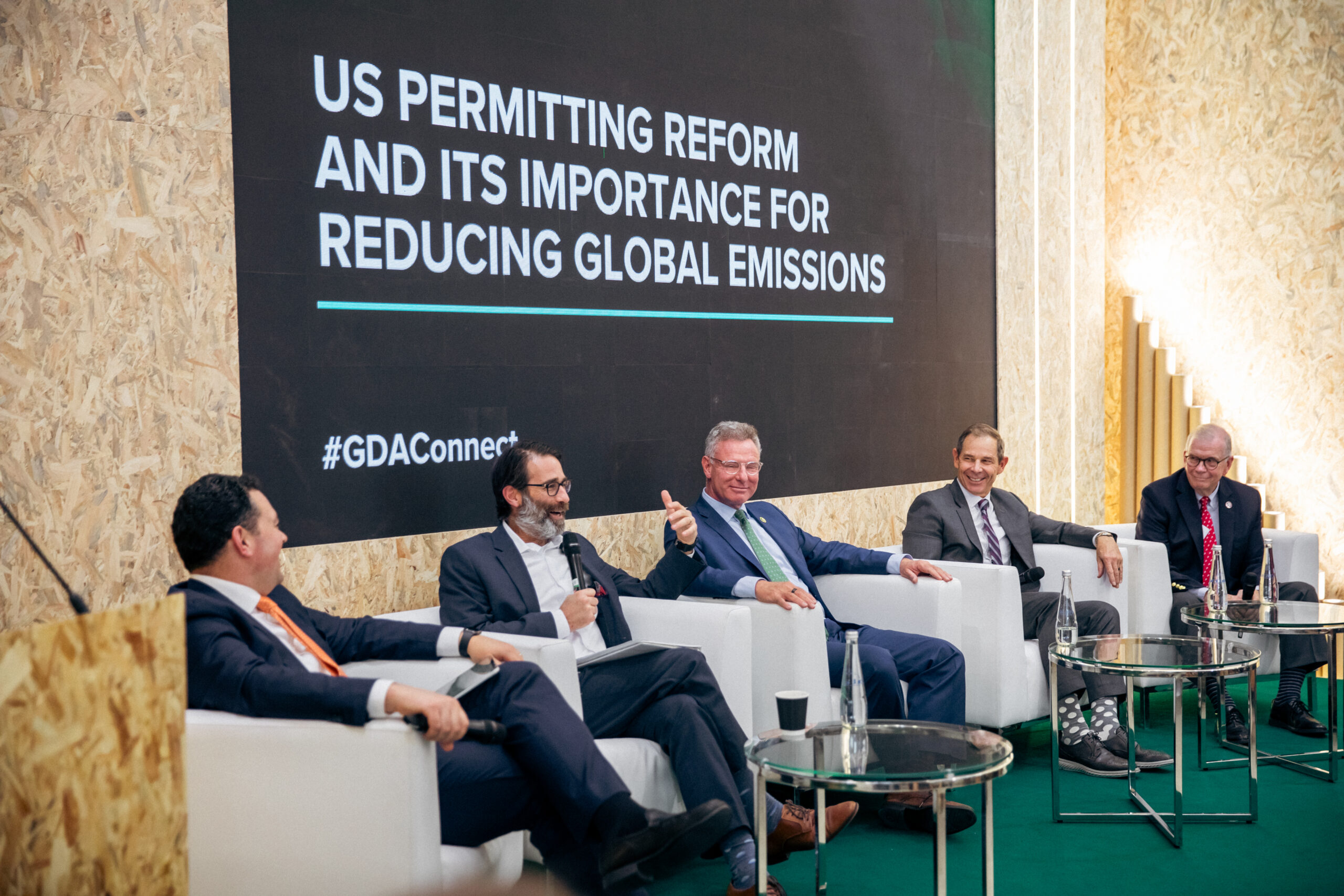Clean energy infrastructure in the United States is being met with significant roadblocks. During the recent United Nations Climate Change Conference (COP28) in Dubai, global and national leaders convened to discuss climate initiatives and efforts to reduce carbon emissions across the globe. A chief issue raised by many leaders was that of permitting reform in the United States.
In a panel titled, “U.S. Permitting Reform and Its Importance for Reducing Global Emissions,” hosted by the Conservative Climate Foundation (CCF) at the Atlantic Council’s Green Zone hub, Rep. Garret Graves (R-La.), Rep. Scott Peters (D-Calif.), Rep. John Curtis (R-Utah), and Rep. Tim Walberg (R-Mich.) discussed the progress Congress has made in regards to permitting reform and the critical work that is still left to do.

The bottom line: The United States leads the world in global emissions reduction, but our progress is threatened by a broken, overburdensome permitting process.
Rep. Graves described U.S. permitting processes and regulatory hurdles: “There is simply not a process that is capable of delivering what is needed in order for us to achieve or to maximize efficiency in emissions reduction strategies – or even meet the demand of energy that is projected moving forward.” Rep. Walberg agreed with his assessment and added, “We have the know-how to do what we need. We just need the permitting process that is affordable, realistic, and – most important – is predictable.”
While Congress has made some progress in updating regulations surrounding permitting, such as updates to the National Environmental Policy Act (NEPA) in the Fiscal Responsibility Act and the House-passed Lower Energy Costs Act, the speed of permitting reform needs to keep up with demand for new projects.
The United States must go on the offense when it comes to permitting reform if they are to remain the global leader in reducing emissions. “We can’t compete, we can’t win, we can’t solve the climate crisis without getting out of our own way,” said Rep. Peters.
“When we say no at home in pursuit of perfection, a lot of times we’re just pushing it someplace else where we have zero control,” said Rep. Curtis. Focusing on permitting reform and creating legislation that will help renewable and low-carbon energy projects thrive in the United States will be a crucial step forward in increasing not only our energy security, but also our national security.


See the full panel recording HERE.